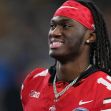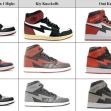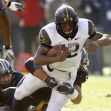A contentious legal battle appears to be coming to an end for Zion Williamson after a court ruled in his favor regarding a $100 million lawsuit.
A federal judge in North Carolina has ruled in favor of Zion Williamson with a partial judgment after a marketing agent sued the basketball star for $100 million in damages citing a breach of contract.
US District Court Judge Loretta Biggs voided the marketing agreement between Williamson and Gina Ford, president of Prime Sports Marketing. The judge deemed the agreement void because it did not stand up to the requirements of North Carolina’s Uniform Athlete Agents Act, an act that was put in place to protect student-athletes.
On April 20, 2019, Williamson signed a five-year agreement with Prime Sports. The basis of the contract was that Gina Ford, president of Prime Sports, would serve as Williamson's representative for endorsement negotiations. Over the course of his first month with the agency, Ford negotiated on behalf of Williamson to secure endorsements from various companies, including Mercedes-Benz, Puma, and EA Sports. Ford only negotiated the terms of Williamson's endorsement negotiations and not the terms of his employment negotiations as a basketball player. A month into the contract, Williamson decided to end the relationship with Ford and replace her with representation from the Creative Artists Agency (CAA). A CAA agent would be able to represent Williamson in both endorsement opportunities and his employment contract as a basketball player.
In response to Ford’s threats to sue the rising star, Williamson filed a lawsuit against Prime Sports, claiming that their contract was unlawful in the state of North Carolina. In his lawsuit, Williamson maintained that Ford was not a registered agent in either North Carolina or Florida and that the company was not certified by the National Basketball Association Player’s Association (NBAPA). Williamson also argued that the contract did not make it clear he would lose his college eligibility if he signed. According to a clause under the Uniform Athlete Agents Act, this clarity needs to be capitalized and bolded in the contract in order for players to understand what they are agreeing to. This is something Williamson says Ford did not include in the agreement.
After Williamson filed his lawsuit, Ford filed her own case in Florida suing the rising star and CAA for $100 million for breach of contract. Ford's lawsuit highlights that not only did Williamson break his contract, but CAA assisted in the breach.
In her ruling, Judge Biggs concluded that the agreement made between Prime Sports and Williamson violated North Carolina law because, as Biggs explains, “ did not hold the requisite athlete agent certification.” Judge Biggs also noted that the contract Williamson signed did not stipulate that he would lose the opportunity to compete as a student-athlete.
Although Williamson has won a judgment in his favor in North Carolina, it remains unclear how this ruling will impact the $100 million lawsuit that was filed against him in the state of Florida.
Williamson's lawyers responded to Biggs ruling stating, “We are grateful that the court invalidated the contract based on the merits of the case, in line with the clear, relevant requirements under North Carolina law. The court confirmed that actual facts matter, which hopefully will serve as a cautionary tale for unscrupulous agents looking to prey on student athletes.”
In the suit filed in Florida, lawyers for Prime Sorts and Ford argue that the ruling in North Carolina should not be able to stand in Florida because Williamson and his family received over $400,000 in improper financial benefits payments before he started his college season at Duke. Duke has not responded to the litigation; however, they did say that after reviewing Williamson's case, they found no cause for concern.
In order to focus on the litigation in North Carolina, A Florida appeals court granted a stay in Williamson’s case in June.
The win for Williamson comes after months of back and forth between Ford and Williamson and reveals an optimistic path for him in the Florida lawsuit. In May 2019, Williamson signed with CAA sports and was later selected as the number one draft pick for the New Orleans Pelicans.






